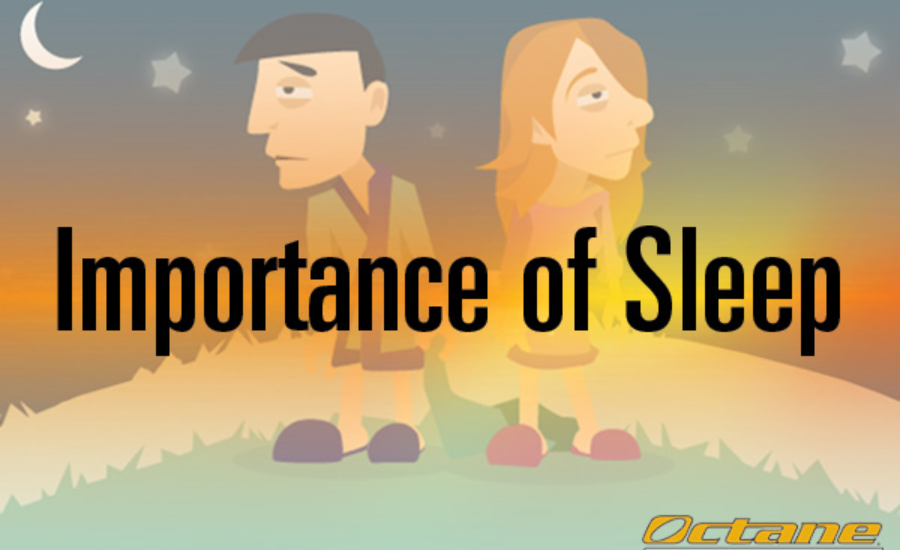Introduction
Sleep is essential to life, but we frequently overlook it in our busy lives. Many people give up sleep to achieve their goals in a world that values productivity and activity. Sleep importance to our physical, mental, and emotional health. This essay illuminates how sleep affects many elements of our life.
I The Science of Sleep
Understanding sleep science is crucial to understanding its importance. Sleep is a multistage physiological process that includes REM and non-REM sleep. Memory consolidation, hormone modulation, and tissue repair occur during these stages.
Stages of Sleep
Each sleep cycle has stages. Three stages of non-REM sleep have distinct properties. The brain becomes active during REM sleep, causing vivid dreams. Each cycle takes 90 minutes and repeats throughout the night.
Function of REM Sleep
Cognitive and emotional function benefit most from REM sleep. The brain analyzes and consolidates memories during this stage, making it essential for learning and memory retention.
Hormone Control While Sleeping
We need sleep to regulate hormones including cortisol, melatonin, and growth hormone. Hormonal rhythm disruptions might alter metabolism and mood.
II. Physical Health Benefits of Sleep
Healthy physical functioning requires adequate sleep. Several facets of our physical health depend on sleep quantity and quality.
Immune System Aid
Sleep naturally boosts immunity. Deep sleep produces cytokines, substances that help the immune system battle infections and inflammation. Sleep deprivation weakens the immune system, making us worse.
Cardiovascular Health
Sleep deprivation increases the risk of cardiovascular disorders like hypertension, heart attacks, and strokes. Sleep heals and maintains the cardiovascular system for optimal function.
Manage Weight
Sleep controls hunger and metabolism. Sleep deprivation alters hunger and satiety hormones, causing weight gain and obesity.
III. Mental Health and Sleep
Our emotional and cognitive health are intimately linked to sleep quality.
Controlling Emotions
Good sleep is vital for emotional stability and resilience. Lack of sleep can cause irritation, mood changes, and emotional reactivity. It contributes to anxiety and despair.
Cognitive Function
Problem-solving, decision-making, and creativity require sleep. Cognitive function is impaired by poor sleep, making it harder to concentrate and think.
Remembering and Learning
Sleep, especially REM, consolidates memories. In this stage, the brain processes daily information and forms long-term memories. Poor sleep can affect learning and memory.
IV. Sleep and Productivity
Breaking the myth that staying up late boosts productivity, sleep is essential to top performance.
The Sleepless Overachiever Myth
Sleep deprivation is believed to boost productivity by many ambitious people. However, studies suggest that rested people are more productive, creative, and focused.
Quality Over Quantity
It’s not just about sleep hours, but also quality. Maximum productivity requires a full night’s sleep with uninterrupted cycles.
V. Sleep Hygiene: Tips for Better Sleep
Now that we know sleep is important, let’s learn how to improve its quality and duration through sleep hygiene.
Consistent sleep schedule
Sleep and wake up at the same hour every day, even weekends. This regulates your body clock.
Make Bedtime Relaxing
Before night, read, meditate, or take a warm bath to relax your body.
Optimise Sleep Environment
Keep your bedroom dark, quiet, and cool to sleep. Buy a comfy mattress and pillows.
Restrict Screen Time
Blue light from phones, tablets, and laptops can disrupt your circadian rhythm. Screens should be avoided an hour before bed.
Watch Your Diet
Avoid large meals and coffee before bed. Eat a light snack and stay hydrated throughout the day.
Exercise regularly
Regular exercise improves sleep. Vigorous activity before night may be stimulating.
Manage Stress
Before bed, try mindfulness, deep breathing, or yoga to relax.
Limit Naps
Long or erratic daytime naps might affect your sleep pattern, but brief power naps can rejuvenate.
Faqs
Certainly! Here are some frequently asked questions (FAQs) about the importance of sleep:
- Why is sleep vital?
Health depends on sleep. It affects memory consolidation, immune function, and emotional control in physical, mental, and emotional health.
- How much sleep do I need?
Sleep requirements vary with age. Teenagers may need more than 7-9 hours of decent sleep per night.
- What happens when sleeping?
REM and non-REM stages make up sleep. Sleep repairs tissues, consolidates memories, and regulates hormones.
- Is there weekend sleep catch-up?
Weekend sleep longer can partially pay for sleep debt, but it’s not sustainable. Best health requires consistent, high-quality sleep.
- How does sleep affect mental health?
Sleep affects mental health. Poor sleep can cause anxiety and sadness, while enough sleep supports mental stability and resilience.
VI. Conclusion
We cannot overstate the importance of sleep. Our emotional, bodily, and productivity depend on it. Good sleep hygiene can improve your health, happiness, and fulfillment. A good night’s sleep is an investment in your health, so resist the urge to stay up late. Sweet dreams!

